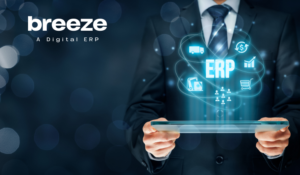An ERP is a tool for you to plan & manage all the core supply chain, inventory, services, financial and other processes of an organisation. Enterprise Resource Planning software are used to automate and simplify individual activities across a business like accounting, procurement, project management, customer relationship management, risk management, compliance and supply chain operations.
ERPs connect every aspect of your business. It allows for better performance and project management that helps plan, budget, predict and accurately report on an organisation’s financial health and processes.
While, historically, most ERPs used to be housed on-premise, with the advent of cloud services, the trends are changing. The cloud is always-on, always-connected. And, as a ERP platform it makes data and accounting software accessible online anytime, from anywhere, on any device.
Let’s have a look at the disadvantages of on-premise ERP to a cloud based one.
Costly – For on premise installation you also need an ERP consultant to help set up the system for your business and ERP consultants are very expensive and take upto more than 50% of the budget.
Requires Skilled workforce – To maintain an on premise ERP or accounting software you need employees who are well versed with the software. Thereby increasing the cost of the workforce hired. Cloud ERPs are on the other hand built to be easy to use and don’t need any specialisation to operate.
Coordination among team members – Many a time’s employees from different departments are apprehensive about sharing information about their department. In this case then the ERP software can be a failure as there is a lack of complete information.
Risk of losing data – Without any cloud server to back up, any issue with on premise computer terminal or the server leads to loss of critical information on your business.
Company Size – ERP being an extensive software that takes time in implementation, not all size of organizations has a need of a full fledged ERP.
Low security – Due to lack of data backup, the security is limited for on premise ERPs.
Low flexibility – These softwares are set with a default setting and if they have to be changed the whole configuration has to be altered. This in turn affects the pre set workflows of the system and makes it more difficult to handle.
Complexity in operating on a multi-branch system – If a company has multiple branches the ERP system which is offline, cannot be a central software for all the branches. Hence, each branch needs to make its own records in a particular format and then upload it to the central system. This increases the margin of error extensively.
With the rapidly changing era, many solutions are coming up in the market. All softwares have their own pros & cons. It’s important for you to select the software system that best suits your business.
Breeze is a completely Cloud and browser based system perfectly suited for small and medium businesses in retail, wholesale and trading businesses. Book your demo now!!



